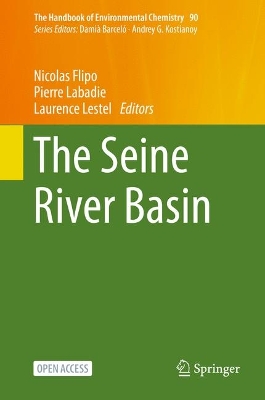The Handbook of Environmental Chemistry
1 primary work
Book 90
The Seine River Basin
This open access book reviews the water-agro-food and socio-eco-system of the Seine River basin (76,000 km2), and offers a historical perspective on the river’s long-term contamination. The Seine basin is inhabited by circa 17 million people and is impacted by intensive agricultural practices and industrial activities. These pressures have gradually affected its hydrological, chemical and ecological functioning, leading to a maximum chemical degradation between the 1960s and the 1990s. Over the last three decades, while major water-quality improvements have been observed, new issues (e.g. endocrine disruptors, microplastics) have also emerged. The state of the Seine River network, from the headwaters to estuary, is increasingly controlled by the balance between pressures and social responses. This socio-ecosystem provides a unique example of the functioning of a territory under heavy anthropogenic pressure during the Anthropocene era. The achievements made were possible due to the long-term PIREN Seine research program, established in 1989 and today part of the French socio-ecological research network “Zones Ateliers”, itself part of the international Long-term Socio-economic and Ecological Research Network (LTSER).
Written by experts in the field, the book provides an introduction to the water budget and the territorial metabolism of the Seine basin, and studies the trajectories and impact of various pollutants in the Seine River. It offers insights into the ecological functioning, the integration of agricultural practices, the analysis of aquatic organic matter, and the evolution of fish assemblages in the Seine basin, and also presents research perspectives and approaches to improve the water quality of the Seine River. Given its scope, it will appeal to environmental managers, scientists and policymakers interested in the long-term contamination of the Seine River.
